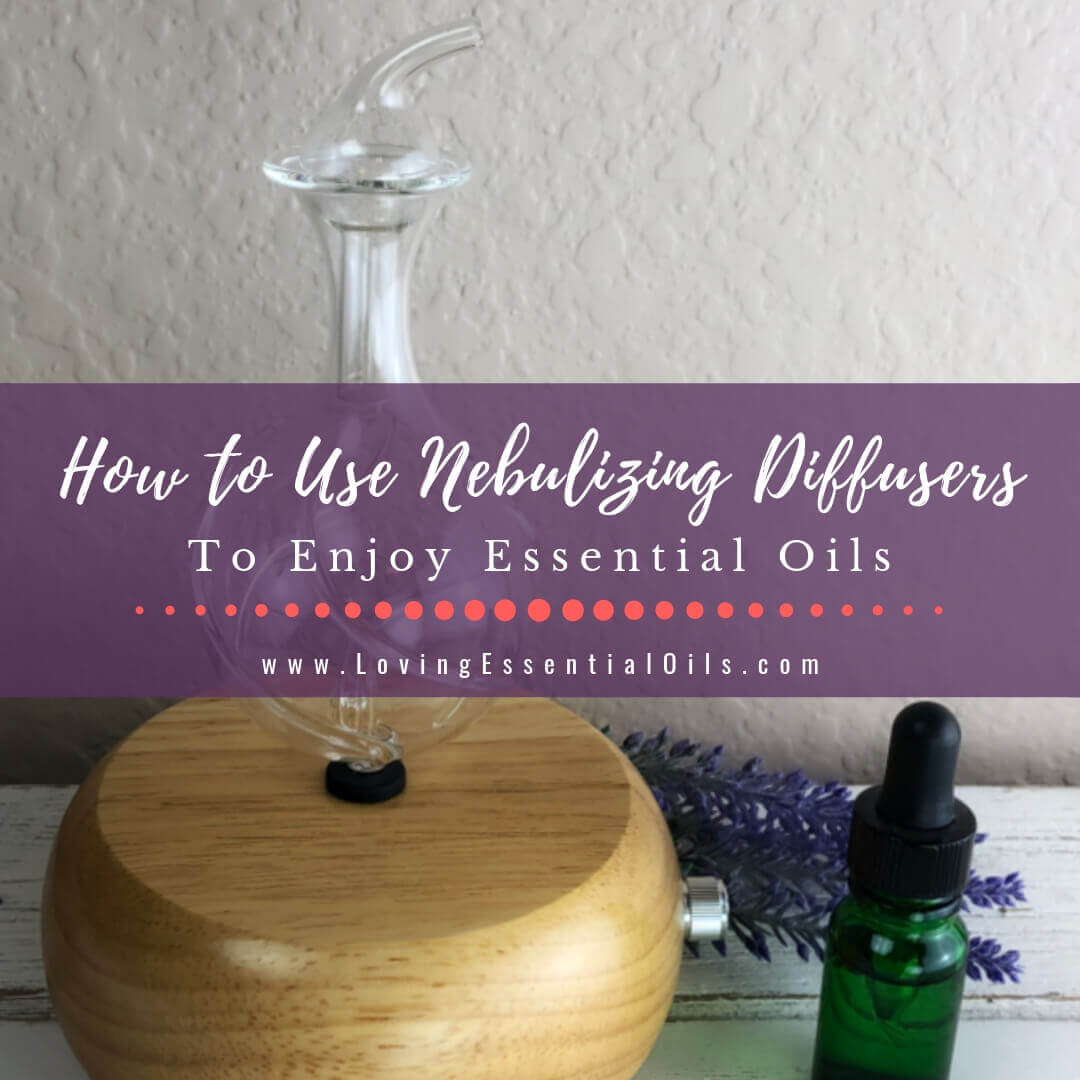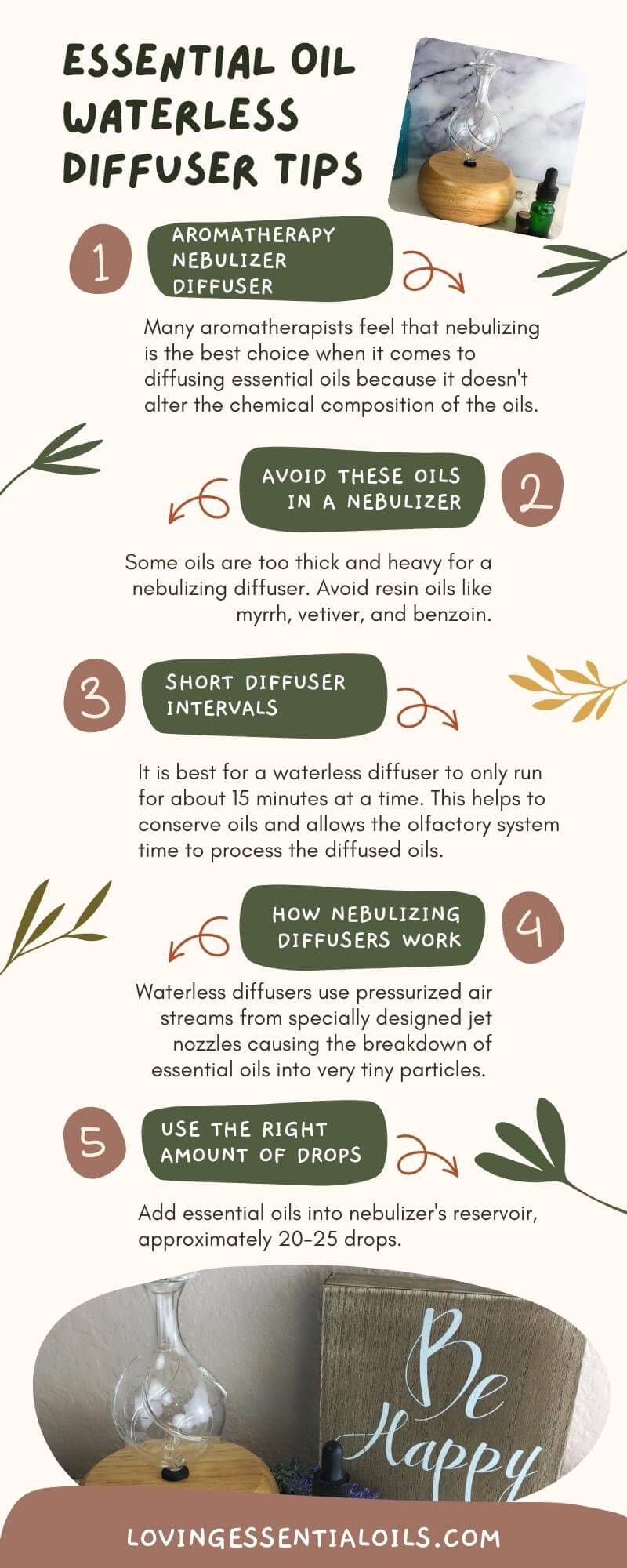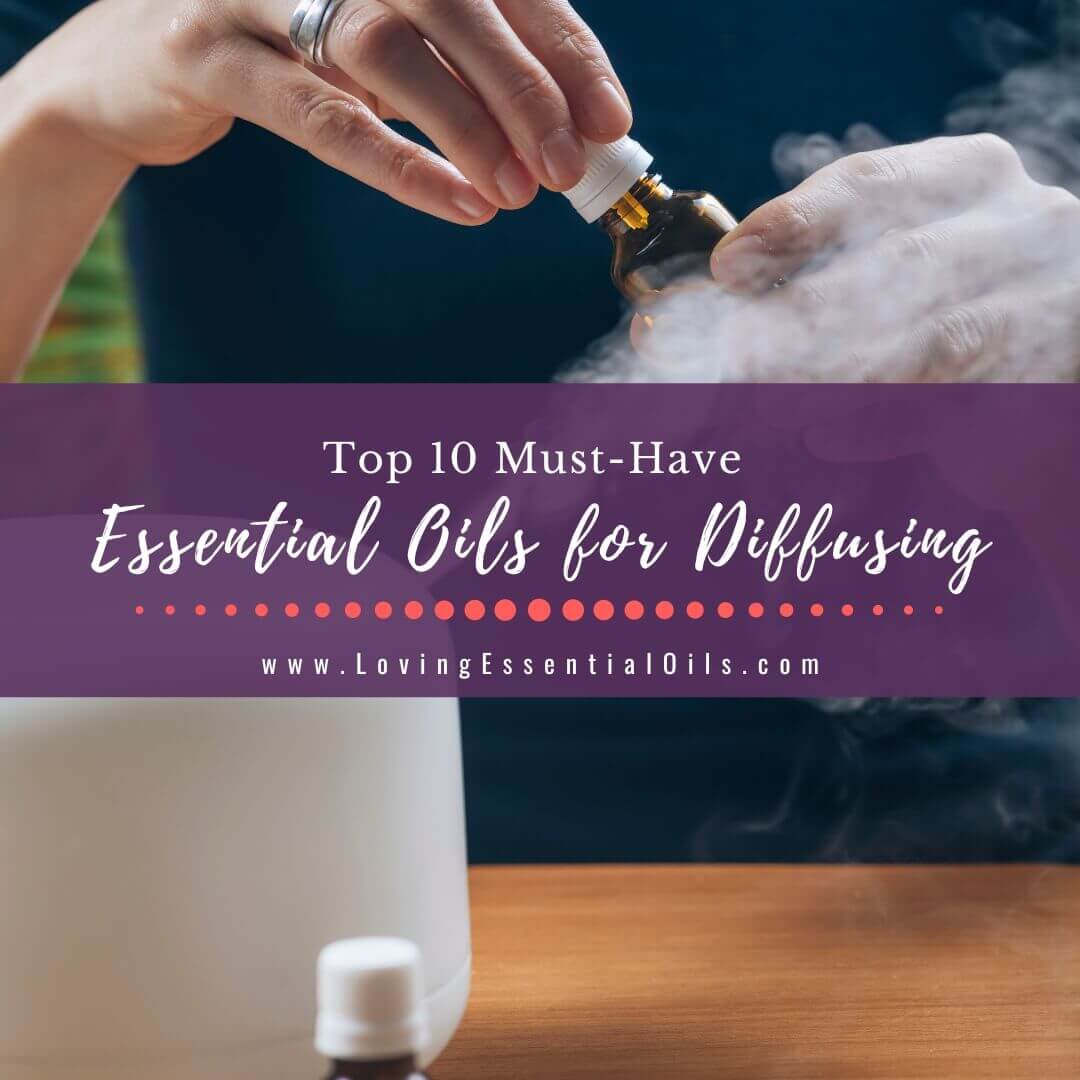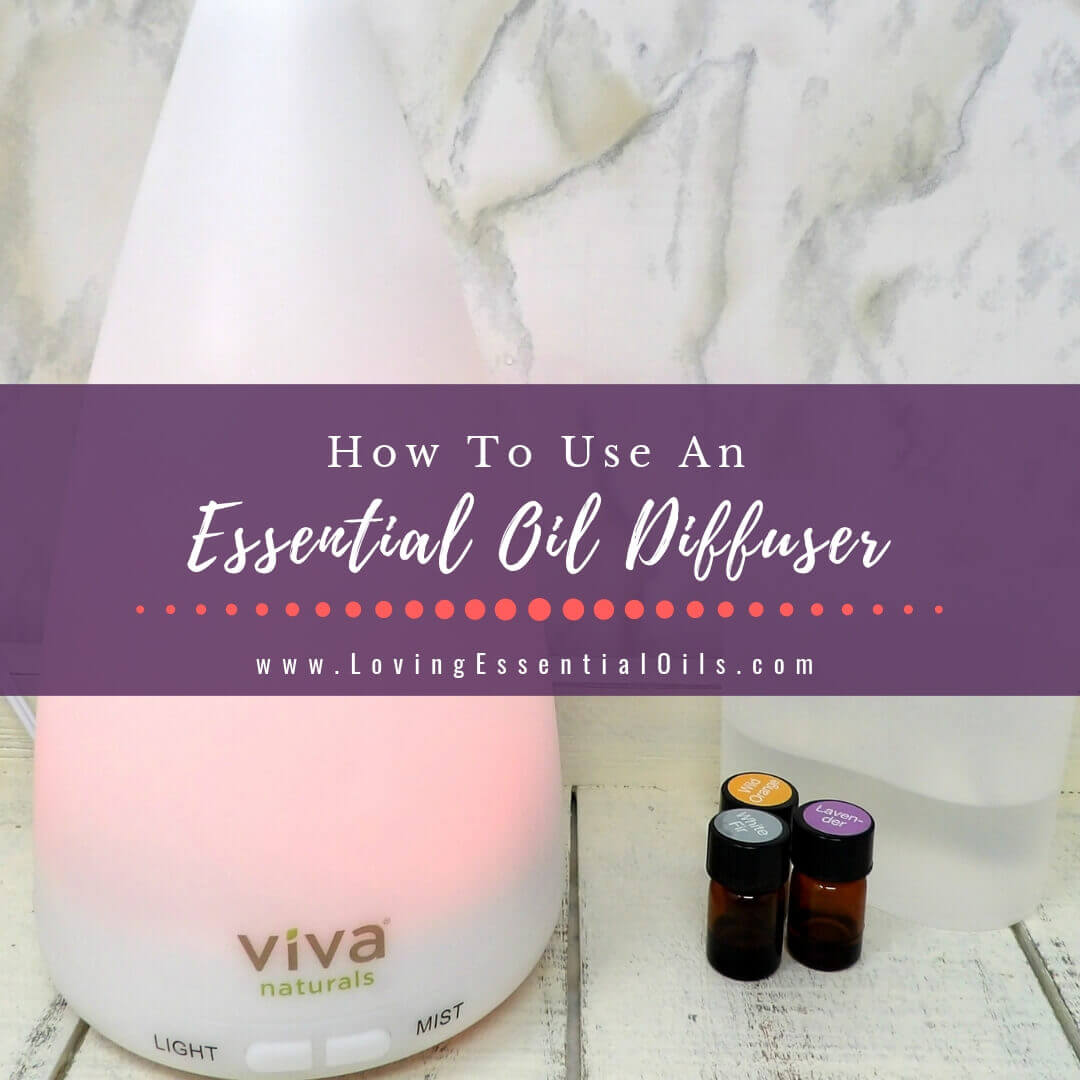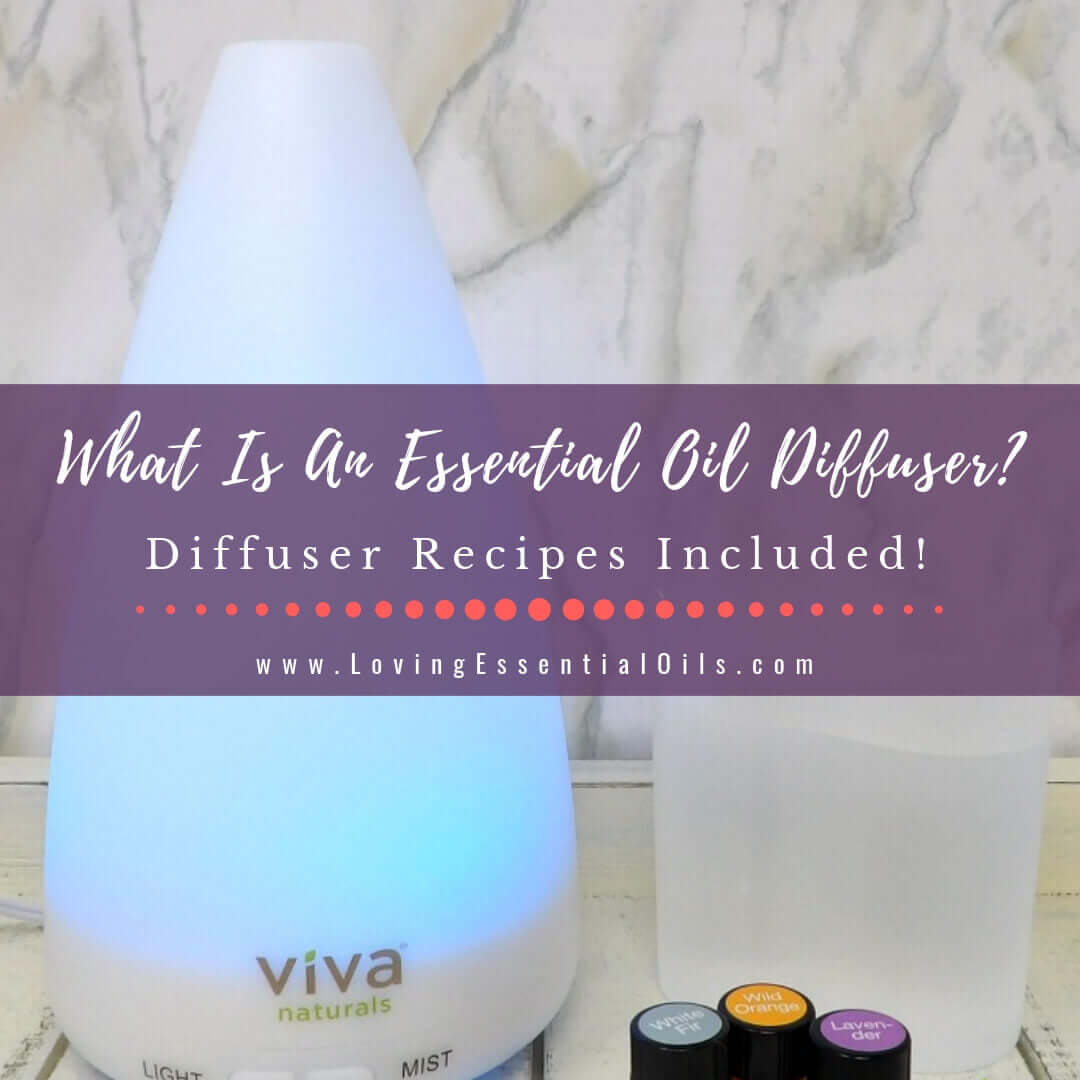Table of Contents
- Types of Essential Oil Diffusers
- How Nebulizing Diffusers for Essential Oils Work
- Benefits of Nebulizing Diffusers
- Cons of Nebulizing Diffusers
- How to Use Nebulizing Diffusers for Essential Oils
- How to Clean Nebulizing Diffuser - 3 Simple Steps
- What Essential Oils Can You Use in a Nebulizer?
- 6 Favorite Essential Oils to Diffuse in a Nebulizer
- FAQs
Diffusing essential oils is one of the most popular ways to enjoy aromatherapy. Many benefits can be gained when they are diffused into the air. Here I share my experience with nebulizing diffusers for essential oils.
Diffusion simply means "the state of being spread out." Different methods can accomplish this. Nebulizing diffusers are just one of four types of diffusers you may choose to use for aromatherapy.
Types of Essential Oil Diffusers
Are you looking for a way to enjoy your essential oils? If so, you may be wondering what the different types of essential oil diffusers are. In this section, we'll discuss the most common types of essential oil diffusers and explain how each one works.
Here are four kind of essential oils diffusers:
1. Ultrasonic Diffusers
This is by far the most popular type of diffuser, it requires water to run. It is able to release essential oil molecules into the air using ultrasonic waves. The waves instantly vaporize the water and oils in the tank to produce a cool, aromatic mist. Sometimes they are called humidifying diffusers.
2. Nebulizing Diffusers (aka Essential Oil Nebulizer)
Nebulizing diffusers for essential oils is the type of diffuser we are talking about in this blog post. These are waterless diffusers that use pressurized air streams from specially designed jet nozzles. This causes the breakdown of essential oils into very tiny particles that are released into the air. No water required.

3. Evaporative Diffusers (aka Passive Diffusers)
This type uses air flow to diffuse the oils. It can include a fan or be diffuser jewelry. When air comes in contact with essential oils they evaporate and the aroma is released in the air.
All of these diffuser types fall into this category:
- Diffuser necklaces
- Lava bead bracelets
- Scent pad diffusers
- Aromatherapy inhalers
Even a bowl of absorbent bead, pinecones, or terracotta stones with essential oils utilize this method of diffusion.
4. Heat Diffusers
Not the best option. This method doesn't involve any water. The heat applied to the oils can damage and lower the effectiveness of essential oils. To preserve your high quality oils, it is best to use one of the other diffuser types.
How Nebulizing Diffusers for Essential Oils Work
This type of diffuser uses the process of nebulization to achieve evaporation. A pressurized air stream from a specially designed jet nozzle forces the breakdown of essential oils into very tiny particles. These tiny particles are small enough for the lungs and body to absorb quickly.
Many aromatherapists feel that nebulizing is the best choice when it comes to diffusing essential oils because it doesn't alter the chemical composition of the oils.
Carrier oils should never be used in a diffuser. Be sure that any premade blends you plan to use are not diluted with carrier oils. Carrier oils do not evaporate.
Organic Aromas Diffuser and Oils
In my search to find a plastic free essential oil diffuser, I found the pictured nebulizing diffuser from Organic Aromas. They even include a free bottle of their signature blend in the box. It consists of Elemi, Clary sage, Cajeput, Bergamot, and Chamomile Morocco and smells wonderful.
Organic Aromas also carries essential oils, here is their Discovery Collection, a great starter set for diffusing, especially if just starting out because you get lots to try (40 sample vials of oil!) at a great price:

Benefits of Nebulizing Diffusers
Works Fast: Quickly fills the air with a larger amount of oils
Waterless: Doesn't require water to diffuse oils
No Heat: Doesn't use heat, it uses air flow to diffuse oils
Plastic Free: Majority of essential oil nebulizers are made of glass
No Humidification: This is especially helpful if you live in a humid area
Cons of Nebulizing Diffusers
Needs More Oil: They tend to use oils at a higher rate than other diffusers
May Be Noisy: Some nebulizer units can be noisier than ultrasonic diffusers
Cleaning: Requires cleaning of the device to prevent clogs
No Humidification: If wanting to add moisture to the air, this won't work as a humidifier
Breakable: Glass essential oil diffusers are more delicate than plastic ones
Costly: In general, this type of diffuser machine is more expensive to purchase
How to Use Nebulizing Diffusers for Essential Oils
One of my favorite place to use my nebulizer diffuser is in the bathroom. The reason is simple, it quickly gets essential oils in the air and eliminates odors. I have also enjoyed running it in the bathroom while I am showering. The diffused oil mixes beautifully with the shower steam.
Here is how to use a nebulizing essential oil diffuser:
Step 1: Assemble your glass diffuser

Step 2: Add essential oils into reservoir, approximately 20-25 drops

Step 3: Add glass spout to top and turn on
It is best to set a timer so that the diffuser only runs for about 15 minutes at a time. This helps to conserve oils and it allows the olfactory system time to process the diffused oils.

How to Clean Nebulizing Diffuser - 3 Simple Steps
Once a week you should clean your nebulizer to keep it running well. Consult your diffuser manual for complete instruction for your model (if different type). Here is how to clean a glass essential oil diffuser:
- Use a dropper to add a few mls of rubbing alcohol to the glass reservoir.
- Turn diffuser on and let run 5-10 minutes to clean the glass tubes.
- Dispose of any remaining alcohol and let the glass diffuser air dry.
What Essential Oils Can You Use in a Nebulizer?
I love trying all sorts of essential oils and oil combinations in my diffusers. You can use just about any essential oils with a few exceptions.
Some oils are too thick and heavy to function properly in a glass nebulizing diffusers. Resin oils like myrrh, vetiver, and benzoin are not good options. If you tip your oil bottle over and it takes a super long time for one oil drop to come out...it is too thick.
Since this type of diffuser uses more oil than an ultrasonic diffuser, I like to use affordable essential oils. I do not use my costly oils like frankincense, helichrysum, rose for this diffuser, unless they are in an oil blend.
6 Favorite Essential Oils to Diffuse in a Nebulizer
You can use an aromatherapy nebulizing diffusers for essential oils machine in a bedroom, living room, bathroom, or kitchen. Here are a few recommendations from me:
1. Eucalyptus Dives Essential Oil Eucalyptus Dives
Eucalyptus dives essential oil is one of my favorites. It smells both refreshing and revitalizing. I love to use it when I need a mental boost or when I'm feeling congested.
Eucalyptus dives oil is also known for its respiratory benefits, so if you're struggling with a cold or the flu, this oil can be a life-saver!
2. Lavender Essential Oil - Lavandula angustifolia
Are you looking for a way to relax and de-stress? If so, you may want to try diffusing lavender essential oil. Lavender has been shown to have a calming effect on the mind and body, making it a great choice for use before bedtime or when you need to take a break from the hustle and bustle of life.
Diffusing lavender oil is one of the easiest and most convenient ways to enjoy its soothing properties. It is helpful for those suffering from insomnia.
3. Lemon Essential Oil - Citrus limon
If you're like me, then you love the smell of lemons. They're such a refreshing scent, and they always make me feel happy. I recently started using lemon essential oil in my diffuser, and it's been such a great addition to my wellness routine.
Lemon oil has so many benefits, including boosting your immune system, improving your mood, and even helping with weight loss. If you're looking for a way to improve your health and well-being, then I highly recommend trying out lemon essential oil in your aromatherapy diffuser. Trust me, you won't be disappointed!
4. Grapefruit Essential Oil - Citrus paradisi
If you're looking for a refreshing and energizing scent to diffuse in your home, grapefruit essential oil is a great choice. This oil has a light, citrusy smell that can help boost your mood and improve your focus.
Plus, it's naturally antibacterial and antiseptic, making it perfect for keeping your home free of germs. Diffusing grapefruit oil is a great way to keep your home smelling fresh and feeling energized.
5. Rosemary Essential Oil - Rosmarinus officinalis
If you're looking for a way to improve your wellness, adding rosemary oil to your daily routine might be the answer. This fragrant oil has many benefits, including helping to improve cognitive function and memory. It can also help reduce stress and anxiety levels. Diffusing rosemary essential oil is a great way to enjoy its benefits!
6. Juniper Berry Essential Oil- Juniperus communis
Do you ever feel overwhelmed by stress? If so, consider using juniper essential oil to help calm and relax your mind and body. Juniper oil has a woodsy, earthy scent that can be diffused into the air to promote feelings of peace and well-being.
In addition, juniper berry oil may also be used topically to help ease muscle tension. Diffusing juniper essential oil may just be the relaxation you need!
FAQs
How do nebulizing diffusers work with essential oils?
Nebulizing diffusers work by using an air pump to atomize essential oils into a fine mist without the use of heat or water. This method preserves the integrity and potency of the oils, allowing users to experience their full therapeutic benefits.
What are the benefits of using a nebulizing diffuser for essential oils?
The benefits of using a nebulizing diffuser include delivering a concentrated and pure aroma and enhancing the therapeutic effects of the essential oils. This type of diffuser is ideal for those seeking a strong, undiluted fragrance and therapeutic atmosphere.
Are nebulizing diffusers better than ultrasonic diffusers?
Nebulizing diffusers are often considered better for therapeutic uses because they disperse essential oils without dilution, providing a more potent aroma. However, ultrasonic diffusers add moisture to the air and are quieter, making them preferable for some users who prioritize these features.
Can nebulizing diffusers be used with any essential oil?
Nebulizing diffusers can be used with most essential oils, but it is important to ensure the oils are pure and of high quality. Heavy or viscous oils may require frequent cleaning to prevent clogging.
Do nebulizing diffusers consume more essential oil compared to other diffusers?
Yes, nebulizing diffusers consume more essential oil than ultrasonic or evaporative diffusers. This is because undiluted oils release a more concentrated mist and thus require more oil for operation.

